The Bardiya Memorial Quilts
Background
 The two quilts featured in these pages commemorate seventeen men and women who disappeared during the conflict in Nepal (1996-2006). Most of the victims were seized at their homes by members of the security forces and taken off, never to reappear. A smaller number were kidnapped by Maoist rebels.
The two quilts featured in these pages commemorate seventeen men and women who disappeared during the conflict in Nepal (1996-2006). Most of the victims were seized at their homes by members of the security forces and taken off, never to reappear. A smaller number were kidnapped by Maoist rebels.
These events occurred in the district of Bardiya which suffered more disappearances (272) than any other district in Nepal. As we explain on other pages, this was because the Tharu people who live in the region were viewed as sympathetic towards the Maoist rebels.
AP’s involvement with the Bardiya cooperative began in 2015 when we began a partnership with NEFAD, the network of family members. This led us to the Bardiya group. Between 2016 and 2018 we sent four Peace Fellows to work at the Bardiya cooperative and introduce the women to advocacy quilting. By the end of 2018, they had made over 50 squares.
In April 2019, Iain Guest from AP visited Bardiya with Bobbi Fitzsimmons, an expert quilter from North Carolina and an AP Board member. Bobbi helped the women design and produce two quilts in just ten days – a remarkable example of north-south cooperation between women artists. It was also the first time that an American quilter has visited an AP partner and provided technical support.
 These pages carry photos of the cooperative members and their squares. For more information about the background and for full profiles of the cooperative members click here.
These pages carry photos of the cooperative members and their squares. For more information about the background and for full profiles of the cooperative members click here.
One of the quilts is staying in Nepal, where it will be shown at events and used by the Bardiya women to demand justice. The second quilt is serving much the same purpose in the US and will feature prominently at future AP exhibitions. At the request of the cooperative, Bobbi also offered training in making bags for sale (photo). The women hope to make and sell 100 bags in 2019.
For more on this project and full profiles of the artists visit our campaign pages. Watch our video to see how the quilting project has helped Bobbi to put her own personal losses into perspective.
Artists and blocks

Bobbi Fitzsimmons and Sarita Thapa, are shown holding the first of the two Bardiya memorial quilts, with the quilting team in April 2019. Prabal Thapa, an AP associate, left, helped Sarita to manage the trainings and translate.
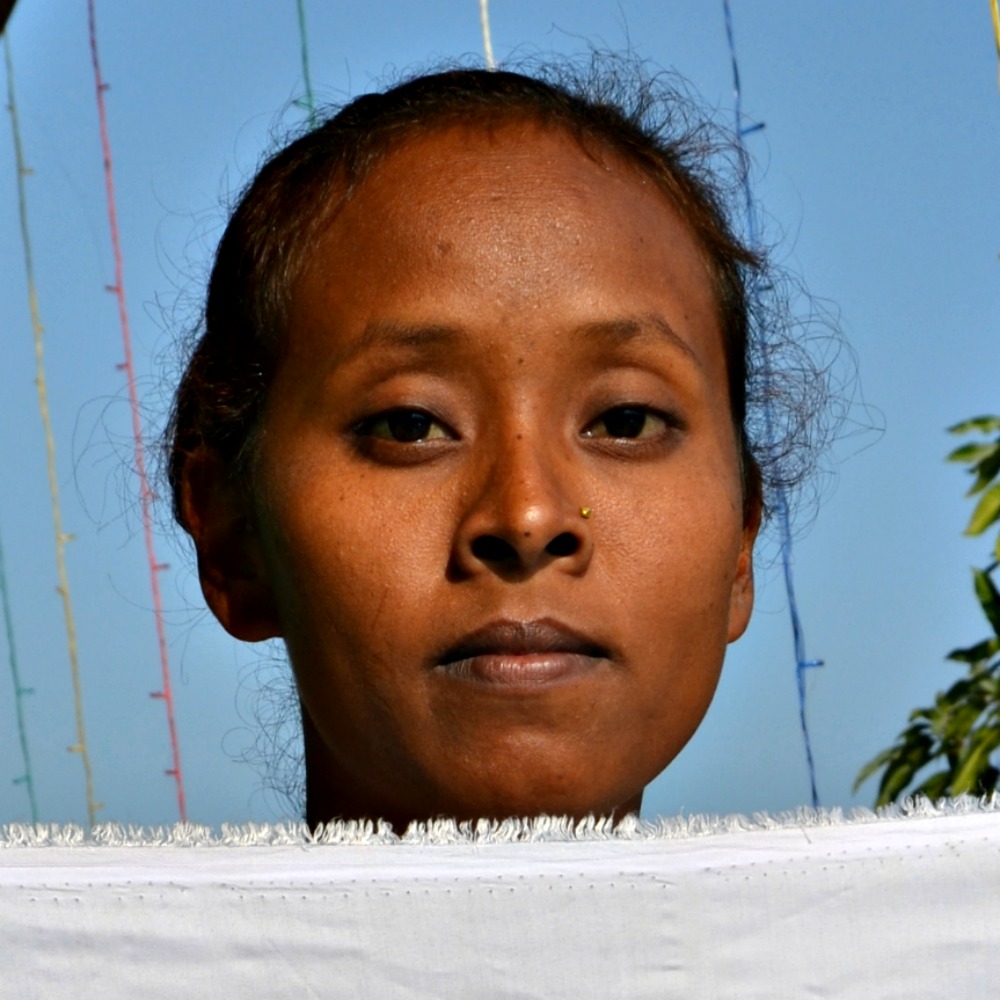
Geeta
Geeta’s brother, Lallu, was forcibly taken from his home in Sujanpur in March 2001. Her father went to see him in the barrack to sign for his bail. During his hearing, Lallu suddenly disappeared. Lallu was a student and was not a Maoist, but it was the worst time of the insurgency. Geeta mentions how the army often took young men who were considered a threat. Geeta was seven years old. She has four brothers and is extremely gifted in embroidery; she learned to sew very fast. Geeta received compensation for her loss and purchased some land with the money. Upon reflecting on the memory of herbrother, Geeta states: “He was very good and well educated. He was always trying to educate me.” Geeta produced blocks for both memorial quilts.
Mankumari’s sister Sumitra disappeared in March 2001. This is one of the saddest stories, which illustrates why the disappearances have been such a tragedy for the Tharu. When she was very young, Sumitra was sent to work in the house of a landowner as a domestic servant (kamlari). In return, her parents were allowed to use the landlord’s land. Sumitra spent 15 years away from home and by the time she returned the Maoists assumed she would be receptive to their message of social change. They put pressure on the family by visiting the house for food and inviting them to break their ties to the landlord. Manakumari thinks Sumitra was seized because she attended a concert which the army viewed as propaganda.
Kushma was seven when her father Ton Bahadur was taken from home by soldiers at night. She does not remember the incident, but her mother has described it many times: “The army came to my home, took my father away and beat him.” Kushma’s father was another victim of a local score. He was not a Maoist, but active in social work in the community. He won a local election and got into an argument with an unsuccessful candidate who denounced Bahadur to the army. Ton had many friends in the village, but the army did not investigate.
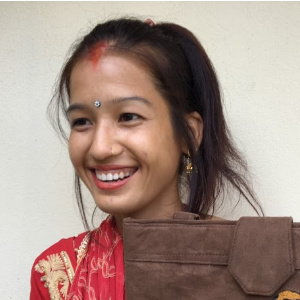
Pooja
Pooja’s father Hukum had been farming in India when he disappeared in 2001. Soldiers took Hukum to an army base near the family home and national park. He never reappeared, and Pooja – who was a year old at the time – remains protective of his memory. She concedes that her father had once been a Maoist sympathizer but says he was no longer active: “He was living an ordinary life.
Kamala is one of only two cooperative members who has been able to bury a relative, bringing some measure of closure. Kamala’s father Keshad was a policeman and in 2002, when Kamala was one year old, the police station where he served was overrun Maoists. Keshad was among those who surrendered only to be shot down. “I don’t remember him but I need to remember the deed. If my father was still alive he would care for me,” she says.
Binita’s husband died in Bardiya, Nepal in 2002. The army took her husband away along with four others from their local village. Binita insists that her husband did not support the Maoists, rather that the Maoists came to their home and forced Binita to make food for them to eat. She went in search of him with her son, but there was no information on her husband’s whereabouts. Binita received compensation for the loss of her husband and testified to the Commission of Investigation on Enforced Disappeared Persons (CIEDP). She wants justice for her husband; she states: “I can’t forget. I always remember him and my two children, it is difficult to support the entire family.”
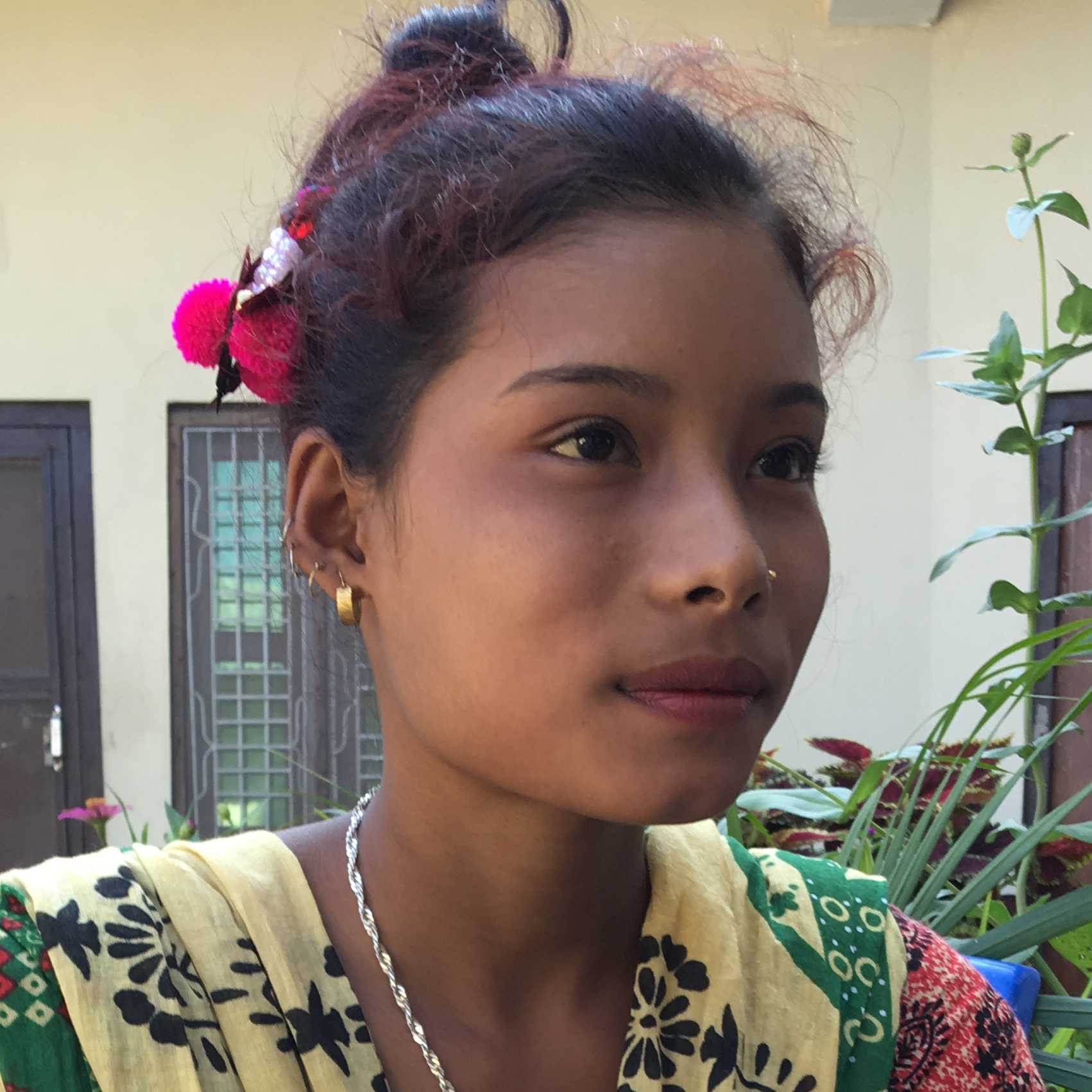
Alina
Alina was an infant when her father Hira Mani disappeared in 2003. Hira made furniture and earned 90,000 rupees a month – a significant amount. One day, he went to work at a neighbor’s house and never returned home. Soldiers came to the family home and questioned Manju, her mother. Manju was about to follow them when a neighbor stopped her, afraid that they would take Manju away as well.
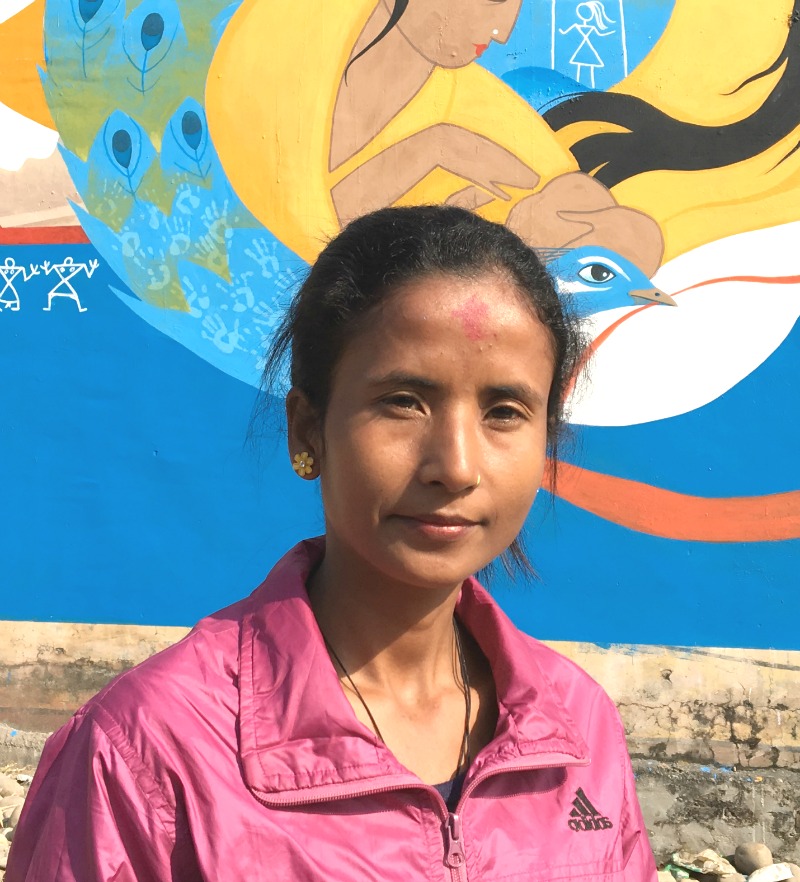 Sarita
Sarita
Sarita is the inspiration behind the Bardiya cooperative. She was eleven when her father Shayam was denounced by a cousin as a Maoist and detained. Sarita, her mother and younger brother were then ostracized and driven from the village. Sarita gave up school to concentrate on the search for her father which has cost the family an estimated 200,000 rupees ($2,000). She endured further tragedy after her husband died from a snake-bite. But these misfortunes only stiffened Sarita’s resolve. Sarita is a strong believer in embroidery as a means of empowering women and has led the projects to produce 50 memorial squares and Tiger bags.
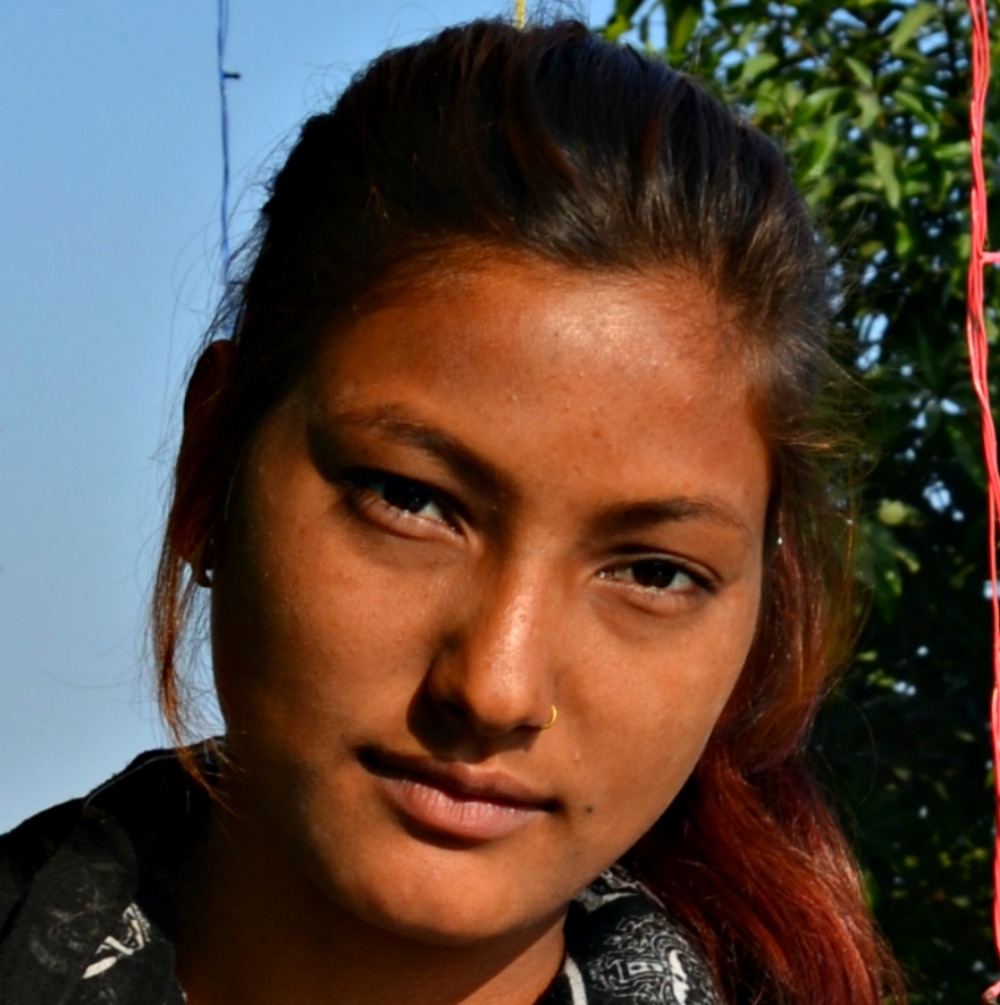 Aishwarya
Aishwarya
Aishwarya was a year old in 2001 when her father Bupendra was seized by soldiers while working in the fields. Aishwarya’s family has received compensation and testified to the disappearances commission but she does not hold out much hope for the commission. Asked what should be done she answers in a soft voice: “I can’t answer that.” But she is clear about why she clings to the memory of her father: “I know how important it is for my mother. Also, I feel his absence when I see my friends with their fathers.”
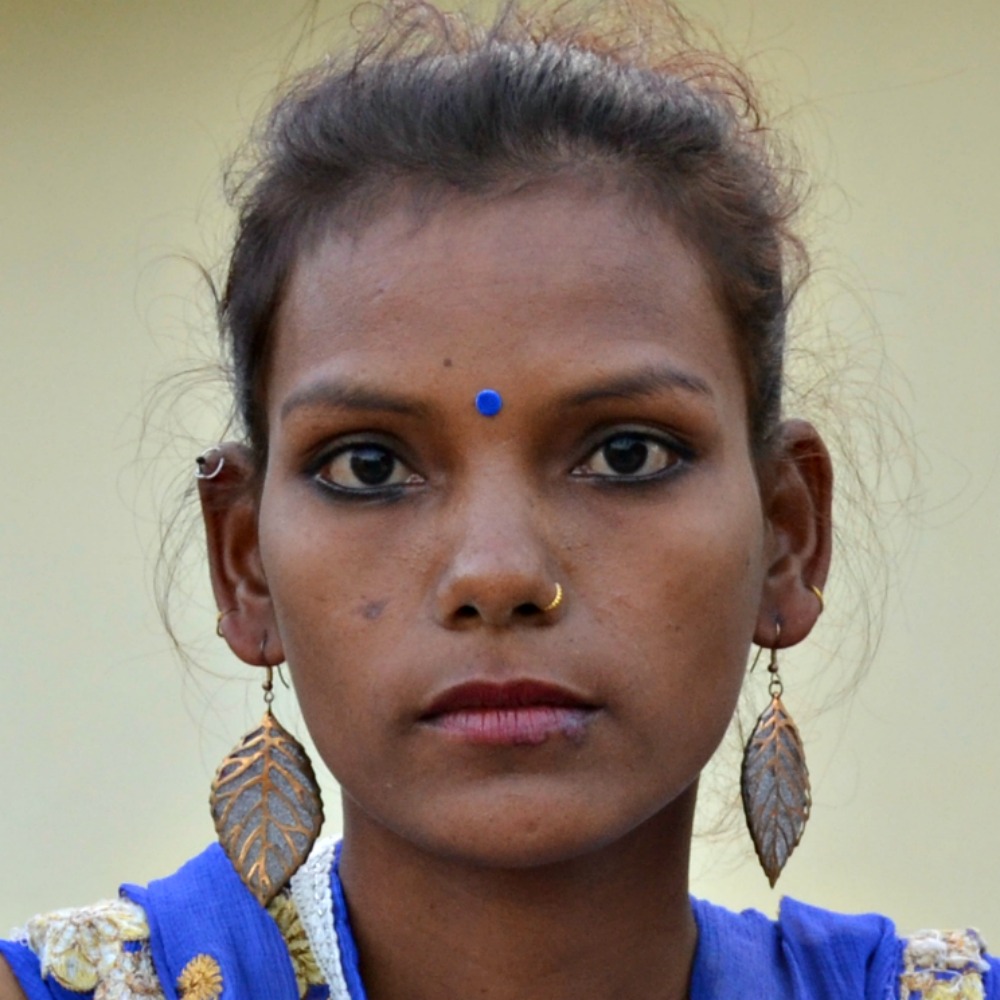
Sharmila
Sharmila’s father, Kallu, was arrested despite not being political. “A large group of soldiers came to our home and demanded that we open the door. My father was not even dressed. At least they allowed him to put on some clothes.” The family went to the local army base but could not get any news. Sharmila was the youngest of six children and in her second year of university when we first met. But she has had to work the land to make ends meet and pay for school, which costs 2,000 a year. When asks whether it is time to forget, she blinks back tears: “My family was dependent on my father. I remember him a lot!”
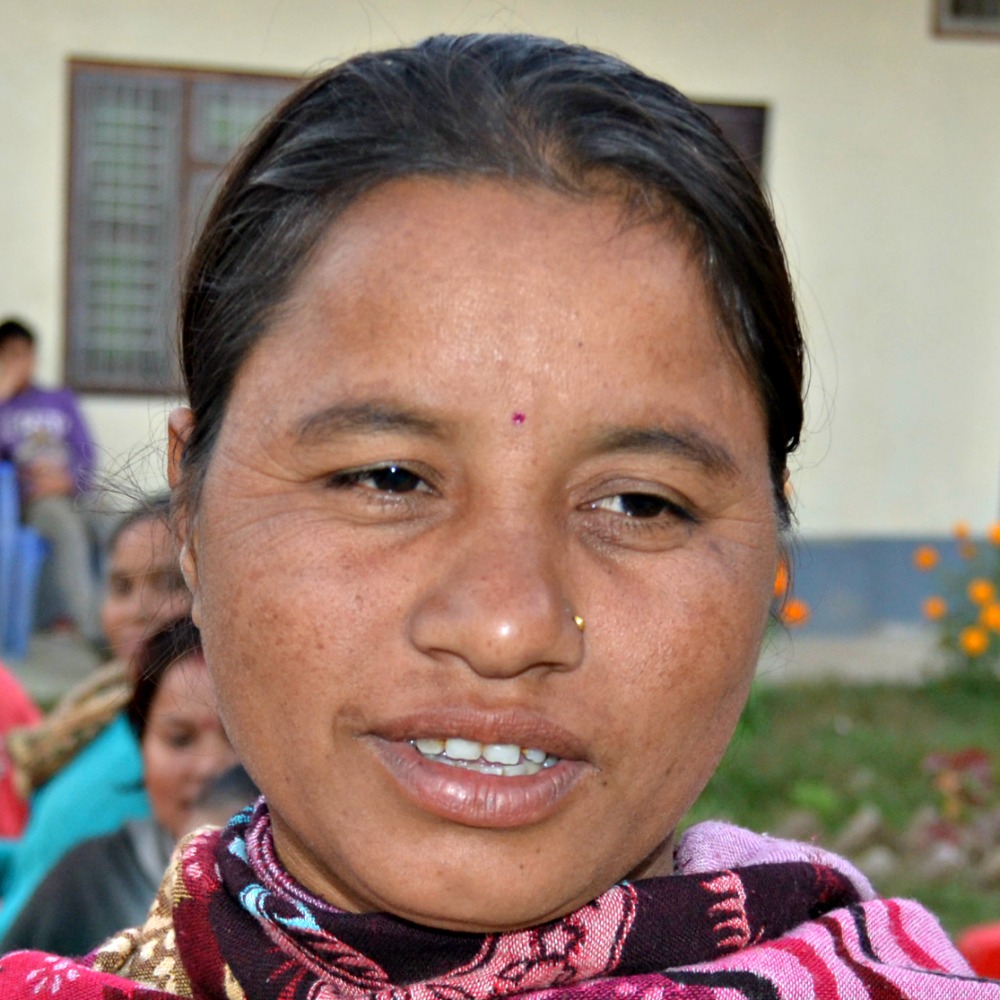
Prem Kumari
Prem Kumari’s husband, Prem Bahadur, was another casualty of local animosities. One of Prem Bahadur closest friends, Uttam, was serving in the army when he decided to visit his mother. It was a risky move and a group of Maoists arrived and seized Uttam, Prem Bahadur, and a third friend. Prem Bahadur and Prem Kumari had been married for four years and had two children. Prem Kumari has been the family breadwinner ever since her husband disappeared. The family land has been transferred to her name, but she remains dependent on her father-in-law, who has registered his son as deceased “because he was worried about his grandchildren.” Luckily the two are on good terms. Other families are not so fortunate. Disputes about compensation have divided several families.
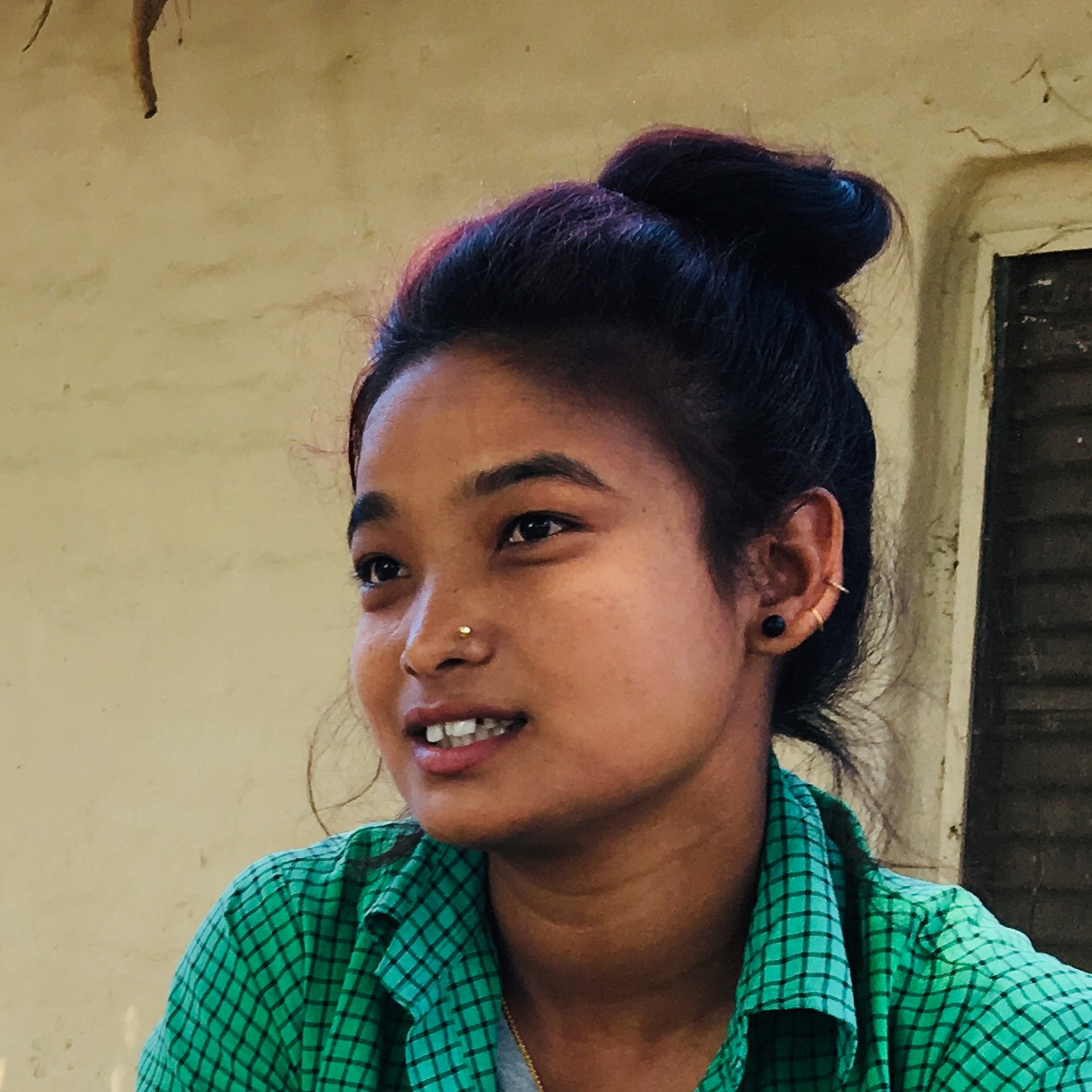
Kancham
In the afternoon of 2002, Kancham’s family threw a modest party at their home. The army was out patrolling and heard that Maoists were hiding in the village, so they came and watched. They shot through their family window without warning, killing Kancham’s brother. Later, the army returned and burned down their home. Kancham was nine at the time and was not home when this event took place. Her brother was 26-years-old and married with two kids. After her brother died, her sister-in-law went with another man and took their children. Kancham did not receive compensation for the loss of her brother, as the payment goes to the wife or the kids. Kancham remembers her brother with fondness; she states: “He could support his family well.”
The First Bardiya Memorial Quilt
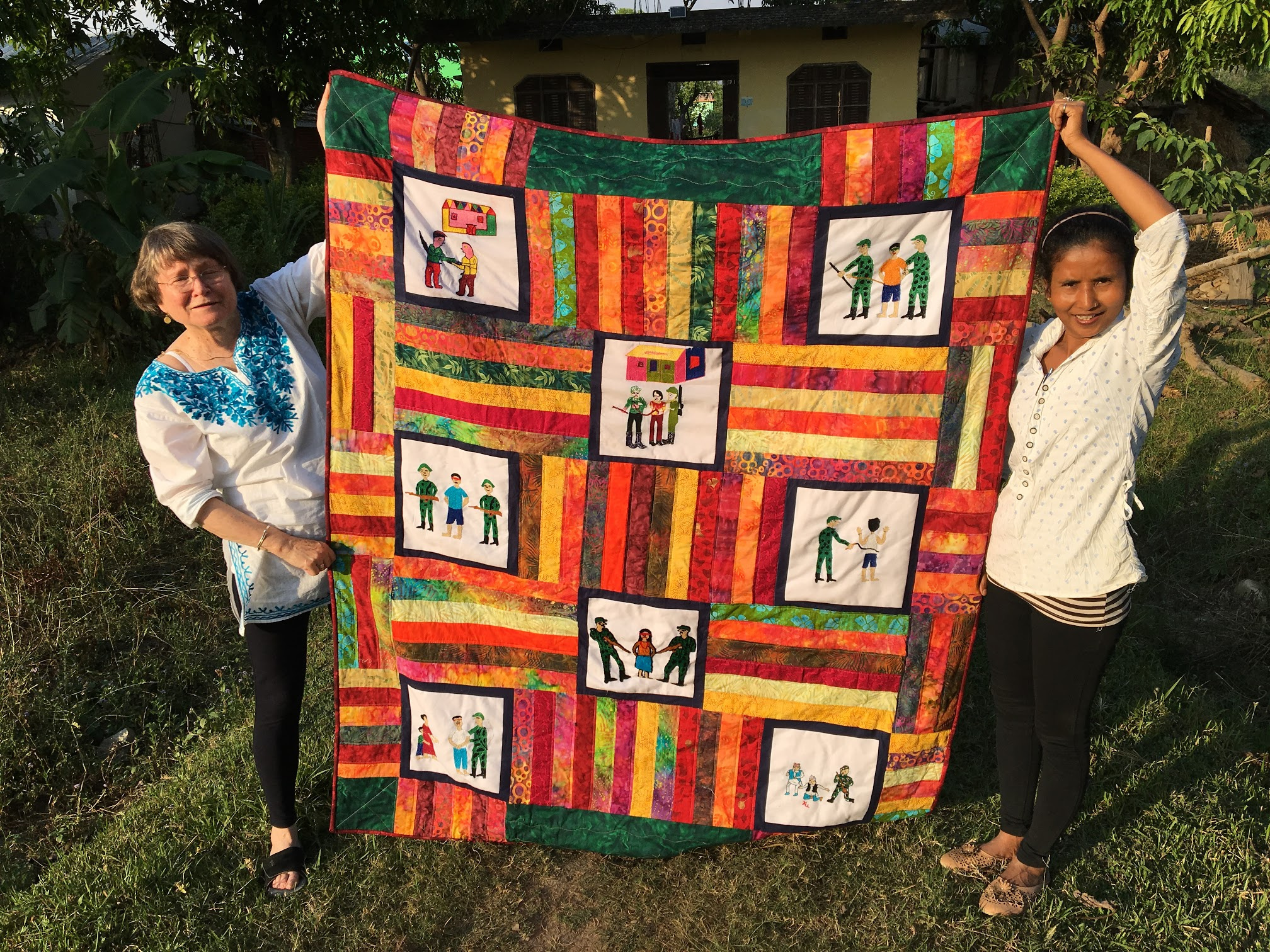
Bobbi Fitzsimmons, left, and Sarita Thapa led the embroidery training for relatives of the disappeared in Bardiya. The first quilt was produced in a week and remained in Nepal to be used by NEFAD and the relatives in their advocacy.
The Second Bardiya Memorial Quilt

Bobbi Fitzsimmons finished the second memorial quilt after returning from Nepal to the US. Four months later the quilt was exhibited at the UN Summit on reproductive health and rights in Nairobi (ICPD 25).


















